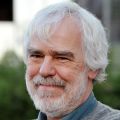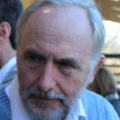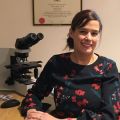Principal Investigators in Oxford
Professor Tao Dong
The aim of Tao Dong’s research group is to investigate the functional aspects of antigen specific cytotoxic T cells (CTL) with a focus on the factors affecting CTL in controlling virus infection and cancer progression. While a robust and appropriate T cell response is typically beneficial to the host during human infections, a weak or inappropriate response can be ineffective or even have a detrimental effect. Over the past two decades, they have been working to understand the key factors required for efficient viral control by T cells in a number of different viral infections and cancer. Establishing both ex-vivo and in-vitro T cell functional evaluation platforms for antigen-specific T cells isolated from tissue and blood. By linking functional data with multi-omic single cell and T cell receptor (TCR) repertoire analysis, they continue to identify potential targets and pathways to augment and control the immune response as a way of improving the outcome of several important human diseases including SARS-CoV-2 virus infection and cancer.
|
professor Christopher conlon
He collaborates with colleagues in HIV research and is currently on the trial steering committee of the RIVER study, a proof of principle trial of HDAC inhibitors and HIV vaccine use in an attempt to ‘cure’ HIV. He also runs the TB service in Oxford and collaborates with colleagues using whole genome sequencing to improve diagnoses. Professor Conlon also has oversight of the Tropical Medicine Group. He is a Fellow and Tutor in Clinical Medicine at Oriel College, Oxford and regularly teaches Oxford medical. In addition, he is Principal Examiner in Medicine in Oxford and Chair of the Royal College of Physicians Joint Specialty Committee for Infectious Diseases. View Christopher Conlon's full profile
|
mr darren nash
Darren is the Associate Head of Department for academic support, finance and human resources at the Nuffield Department of Medicine. In this role he is responsible for all business management functions and all non-academic staff in the Department, including major activities and units in Oxford, Kenya, Vietnam, Thailand and China. He is also a Director of three university subsidiary companies. He has an MBA from Oxford’s Said Business School, and combined with 25 years experience in this global research environment provides support and training to partner organisations to facilitate research. View Darren Nash's full profile
|
dr Katherine bull
Dr Katherine Bull is a group leader in the Centre for Human Genetics and Honorary Consultant Nephrologist in the Oxford Kidney Unit. She previously held an MRC-Kidney Research UK Professor David Kerr Clinician Scientist fellowship. The development of new therapies for kidney disease is hampered by limited understanding of the underlying mechanistic pathways at the cellular level. This contrasts with the situation in cancer biology for example, where detailed understanding of cell biology, including the immune response, is transforming treatment. To make such advances for patients with renal disease, our objective has been to develop a variety of clinical models and tools, and then establish new approaches to interrogate tissue cellular pathology. We apply gene editing, single cell transcriptomics, and renal and immune phenotyping, to models and human samples. In particular our work focuses on glomerular protein leak, a hallmark of many renal pathologies. View Katherine Bull's full profile
|
Professor Richard cornall Nuffield Professor of Clinical Medicine and Head of Department, Professor of Immunology Nuffield Professor of Clinical Medicine and Head of Department, Professor of Immunology
Richard Cornall is the current Nuffield Professor of Clinical Medicine and Head of Department of the Nuffield Department of Clinical Medicine at the University of Oxford. He studied biochemistry at Cambridge University and medicine at Oxford. After a period at Stanford University, he became a Wellcome Trust Senior Clinical Fellow and Honorary Consultant in Renal and Transplant Medicine at the University of Oxford. He was the Deputy Head of the Medical School and Medical Sciences Division of the University from 2015-17. His research is in the area of immune regulation and autoimmunity, B cells, the treatment of autoimmune diseases and the use of genetics and animal models to identify new pathways in immunity. View Richard Cornall's full profile
|
professor michael dustin
Prof. Dustin has a B.A. in Biology from Boston University (1984) and a Ph.D. in Cell and Developmental Biology from Harvard University (1990). Dr. Dustin led his own group at the Department of Pathology at Washington University School of Medicine under Steve Teitelbaum and Emil Unanue from 1993 to 2000. While at Wash U, he led a collaborative group in discovering requirements for the T cell immunological synapse with Andrey Shaw, Paul Allen, Mark Davis (Stanford) and Emil Unanue. Continuation of work on the immunological synapse led to a basic description of the supramolecular assemblies that make up the mature immunological synapse. Specialized functions of the immunological synapse in cytotoxic T cells and regulatory T cells were also explored. View Michael Dustin's full profile
|
Professor tim elliott
Tim Elliott is a world leader in the field of antigen presentation and T cell biology and has incorporated discoveries in the areas of antigen processing, T cell regulation and immunodominance into the development of new cancer immunotherapies. He is a Fellow of the Royal Society for Biology and Fellow of the Academy of Medical Sciences; founding Editor-in-Chief of the journal Immunotherapy Advances published by the British Society for Immunology; and chaired the Cancer Research UK Cancer Immunology expert review committee. Professor Elliott was appointed to the Kidani Chair of Immuno-Oncology at the University of Oxford in 2020. View Tim Elliott's full profile
|
Dr ricardo fernandes
The main objective of our research group is to identify key functional aspects affecting anti-tumor responses by T cells. To do this, we use protein engineering, guided by structural and signaling information, to generate novel molecules that allow us to explore and interrogate key aspects of receptor signaling and T cell function. We are currently focusing our efforts in developing molecules to overcome “inhibitory” signaling by immune checkpoint receptors and to enhance signaling by the T-cell receptor. Ricardo Fernandes recently joined CAMS Oxford Institute coming from Stanford where he developed novel molecules to effectively shut down signaling by immune receptors such as PD-1. View Ricardo Fernandes's full profile
|
Professor Roman Fischer
In the Discovery Proteomics Facility of the Target Discovery Institute we provide advice in experimental design, sample preparation, sample analysis with state-of-the-art LCMS workflows and data analysis to researchers from Oxford University and national and international collaborators. We routinely use label-free quantitation, SILAC, TMT, SWATH and other methodologies on diverse samples (i.e. cells, tissues, immuno precipitates et al.) and have developed sample preparation techniques to access the deep proteome form little sample amounts using instrumentation such as Orbitrap Fusion Lumos or TimsTOF Pro. My own interests evolve around clinical proteomics and applications for the spatial characterisation of the proteome in biological structures such as tissues and tumours. In addition, I am developing methodologies for the proteome characterisation of clinical cohort samples at high-throughput. View Roman Fischer's full profile
|
professor dame sarah gilbert
A post in Prof Gilbert’s lab is funded by the Chinese Academy of Medical Sciences to work in collaboration with Prof Tao Dong’s lab. The research topic is the processing and presentation of T cell epitopes from nucleic acid-based vaccines, to include adenoviral vectored vaccines and RNA vaccines. The work will assess alternative antigen designs for use in the vaccine technologies and assess the effect on T cell epitope processing and presentation. This will inform the development of vaccines against outbreak pathogens which may be further developed within the Pandemic Sciences Institute. View Sarah Gilbert's full profile
|
professor doug higgs
Our laboratory is interested in the general question of how mammalian genes are switched on and off during lineage commitment and differentiation. We study genes (e.g. globin) in detail and also study gene expression using genome wide analyses. We study all aspects of gene expression including the key cis-regulatory elements (enhancers, promoters and insulators), the transcription factors and co-factors that bind them, the epigenetic modifications of chromatin and DNA and the role of associated phenomena such as chromosome conformation and nuclear sub-compartmentalisation using imaging techniques. These studies are performed both in cell systems and in model organisms as well as in human patients with various inherited and acquired genetic and epigenetic abnormalities. The translational goal of this work is to develop new ways to modify gene expression during blood formation with the aim of manipulating gene expression and ameliorating the clinical phenotypes of patients with a variety of blood disorders.
|
professor ling-pei ho
We are interested in how immunological responses impact on mechanisms of lung injury and repair. The projects are divided into mechanistic and translational studies. The mechanistic studies question how innate immune cells like iNKT cells, MDSCs and monocyte-macrophage lineage impact on outcome in severe influenza virus infection and progression of lung fibrosis. These studies inform, drive and allow us to test mechanistic hypotheses in/from our human work. In the translational space, our focus is on new or improved therapy for lung fibrosis. Our diseases of interest are idiopathic pulmonary fibrosis (IPF) and fibrotic sarcoidosis, and we target the interface between cellular immunology, disease mechanisms and early clinical trials. View Ling-Pei Ho's full profile
|
professor sir peter horby
Sir Peter Horby is Moh Family Foundation Professor of Emerging Infections and Global Health at the University of Oxford and the Director of the Pandemic Sciences Institute. The Pandemic Sciences Institute is a multidisciplinary initiative to create collaborative science-driven solutions to identify, prepare for, and counter pandemic threats. He is also Executive Director of the International Severe Acute Respiratory and emerging Infections Consortium (ISARIC), a consortium of international, national and local research networks whose research activities span 134 countries worldwide. He is Co-Chief Investigator of the RECOVERY trial of treatments for viral pneumonia. He has advised the World Health Organisation, the UK Government and other agencies on epidemic preparedness, clinical research and clinical trial design for epidemic infectious diseases. He is the former, and founding, Director of the Oxford University Clinical Research Unit in Hanoi, Vietnam. The unit was established in early 2006 and conducts research on infectious diseases which crosses the disciplines of basic science, medical science and public health. View Peter Horby's full profile
|
professor fadi issaProfessor of Translational Immunology Professor Fadi Issa jointly leads
|
Professor E. Yvonne jones
Yvonne Jones is Director of the Cancer Research UK Receptor Structure Research Group which is focused on the structural biology of extracellular recognition and signalling complexes. The group's core techniques include protein crystallography and, increasingly, cryo electron microscopy, which are used to generate high resolution structural information. Importantly, studies using these techniques are integrated with advanced light microscopy and cryo electron tomography, as well as cell-based functional studies, to probe molecular mechanisms at the cell surface. The group's research addresses fundamental questions about cell-cell signalling systems of importance to human health. The work ties into an extensive network of interdisciplinary local and international collaborations with the ultimate aim of learning how to manipulate these signalling systems for the design of new clinical therapies. Current projects within the group focus on signalling systems of importance in developmental biology. View Yvonne Jones's full profile
|
professor benedikt kessler
We intend to analyze a particular subset of the deubiquitylating enzyme family, containing an ovarian tumor domain (OTU). This conserved motif encodes for a potential cysteine protease, and is conserved throughout evolution. However, the function of this class of proteins is largely unknown. An approach based on a tandem affinity purification strategy will be established to determine protein interaction partners. A proteomics screen for protease substrate discovery will be established to identify substrates and provide entry points for genetic and biochemical analyses of their function. Our studies indicate a central role for OTUs, in particular OTUB1, in regulating cell invasion and morphology by modulating the stability of small GTPases. The impact of these molecular interactions are studied within the context of host-pathogen interactions and tumourigenesis. View Benedikt Kessler's full profile
|
professor julian knight
My research aims to understand how genetic variation impacts genes critical to mounting an appropriate immune response and may contribute to susceptibility to infectious, inflammatory and autoimmune diseases. There is a wide spectrum of genetic variation modulating inter-individual differences in immune response with functional consequences ranging from severe primary immunodeficiency disorders to risk of multifactorial traits involving inflammation and immunity. Our recent discovery that non-coding regulatory variants are major drivers of diversity in the immune response transcriptome identifies an important mechanism for this. We have established translational programmes in the genomics of sepsis as part of the Genomic Advances in Sepsis study and in ankylosing spondylitis. We aim to promote use of genomics for drug target identification and validation, public engagement with genomics and implementation of genomic medicine in the clinic through education, training and a multidisciplinary approach. View Julian Knight's full profile
|
professor marian knight
Marian Knight is Professor of Maternal and Child Population Health at the National Perinatal Epidemiology Unit. She trained initially in obstetrics and neonatology, completing a DPhil investigating the pathogenesis of pre-eclampsia, before becoming interested in epidemiology and population health. She therefore undertook specialty training in public health, becoming a Fellow of the Faculty of Public Health in 2006. She is an Honorary Consultant in Public Health with Public Health England. Her work focuses on using national observational studies to address clinical questions concerning rare and severe complications of pregnancy and early life. She also leads the MBRRACE-UK national confidential enquiries into maternal morbidity and mortality. View Marian Knight's full profile
|
professor teresa lambe
Professor Teresa Lambe is a Principal Investigator at the University of Oxford. Professor Lambe has been involved in immunology research for over fifteen years with extensive knowledge in the assessment of naturally acquired and post-vaccination immune responses. Professor Lambe’s research programme focuses on developing innovative vaccines against emerging and outbreak pathogens. Outside of her most recent work on the ChAdOx1 nCoV-19 (AZD1222) vaccine, her group have progressed novel vaccine development against lethal haemorrhagic viral diseases such as Ebolavirus, Lassa fever virus and Crimean-Congo haemorrhagic fever. This experience proved to be a dry-run for her recent work developing a vaccine against SARS-CoV-2. As well as her role in the initial design of the ChAdOx1 nCoV-19 vaccine and leading the pre-clinical testing programme, Professor Lambe’s group are leading critical laboratory studies evaluating the antibody response post-vaccination. View Teresa Lambe's full profile
|
Professor Jane McKeating Professor of Molecular Biology Professor of Molecular BiologyOur research focuses on understanding early infection events that define cellular and tissue tropism of clinically important viruses. Preventing viral induced disease begins with an understanding of the host factors that define susceptibility to infection. We recently discovered that the low oxygen environment naturally found in the liver enhances HBV and HCV replication and this is mediated by hypoxia inducible transcription factors (HIFs). Inhibiting HIFs or suppressing their expression limits virus infection, highlighting new therapeutic approaches. Studies in our laboratory show that hypoxia limits HIV transcription and HIF-stabilizing drugs potentiate viral reactivation from latent sites of infection. Understanding the role of hypoxia induced signalling and metabolic effects on HIV transcription and latency will inform the development of new ‘curative strategies’. View Jane McKeating's full profile
|
Professor Sir Andrew McMichael Emeritus Professor of Immunology (FRS) Emeritus Professor of Immunology (FRS)Andrew McMichael’s group works on HIV vaccine development. In collaboration with Louis Picker, OHSU, he is working on the MHC-E restricted T cell responses that can clear acute SIV infection in some monkeys. This relates to his work with Veronique Braud in 1998 when they showed how HLA-E presents a particular peptide to NKG2/CD94 to regulate natural killer cells. When primed by a rhesus CMV vaccine recombinant for SIV genes or by mycobacteria, HLA-E can also present a range of epitope peptides to CD8 T cells. In collaboration with Geraldine Gillespie and Yvonne Jones, Lucy Walters has determined the structures of HLA-E bound to a set of epitope peptides. These structures reveal how HLA-E can bind peptides with very diverse sequences eliciting the exceptionally broad T cell responses that can clear SIV. Together with Professor Persephone Borrow his group are also exploring the relationships between human T follicular helper cells and other CD4 T cells in blood and tonsils. He is asking whether microbiome antigens can prime naïve CD4 T cells in humans and establish a repertoire of pre-immune cross reactive memory cells that dominate primary T cell responses to vaccines. His work is highly relevant to pathogen immunity and he has strong links to Chinese colleagues at the CTI, CAMS, China CDC and You’an Hospital. View Andrew McMichael's full profile
|
Associate professor juthathip mongkolsapaya
Juthathip Mongkolsapaya jointly runs the Screaton lab group with Professor Gavin Screaton. Our main research is to understand immune-responses, particularly antibody responses, against emerging pathogens, such as dengue virus, zika virus, HIV, Ebola virus, SARS and MERS and, the most recent, SARS-CoV2. We employ a wide range of approaches including virology, immunology, biochemistry, and structural biology to elucidate pathogenic mechanisms, to generate diagnostic and therapeutic reagents, design vaccines, and contributed to policy development. For example, during the COVID pandemic, we generated reagents that were involved in establishing a protocol to measure the antibody response, which have been used to monitoring the immune status in UK population. Hundreds of monoclonal antibodies were generated and characterised for their neutralisation activities, cross-reaction among the variants, and bio-physical properties. And in combination with crystal and cryo-EM structures, we described the antigenic distance among the variants and how new emerging variants escaped from existing immunity. View Juthathip Mongkolsapaya's full profile
|
Associate professor bethan psaila
Our research focuses on four key areas: (1) Dissecting the interactions between blood stem cells, megakaryocytes and the stroma in normal haematopoiesis and blood malignancies; (2) Development and application of human bone marrow organoids to study normal and malignant haematopoiesis and validate targets in the relevant tissue microenvironment; (3) Developing novel strategies to selectively target cancer stem cells and pathological megakaryocytes in myelofibrosis, a severe bone marrow malignancy; (4) Understanding our recent discovery that platelets contain a repertoire of DNA fragments sequestered from cell free DNA, and confirming clinical utility for cancer detection and for pre-natal diagnosis. In the clinic, I care for patients with myeloproliferative neoplasms, leading a small portfolio of clinical trials with a focus on immunotherapies am Deputy Chair of the National Cancer Research (NCRI) Haematology-Oncology MPN Subgroup and actively contribute to local and national treatment guidelines, patient forums and priority setting workshop. I trained at Clare College, Cambridge, Imperial College London/The Hammersmith Hospital, Cornell, New York, and the National Institutes of Health, Bethesda USA. I am also a Senior Fellow of New College, Oxford, recruiting and overseeing clinical training of ~20-30 medical students per year. View Bethan Psaila's full profile
|
Professor Graham Ogg Professor of Dermatology Professor of DermatologySkin and mucosae frequently represent the first point of contact with pathogens and allergens, yet we still know relatively little of the role of the surface immune system in clearing such challenges. This is crucially important in understanding the mechanisms of skin diseases and related diseases, and for optimising approaches to cutaneous drug and vaccine delivery. The aim of the group is therefore to understand, at the molecular and cellular level, the role of human cutaneous immune responses in mechanisms of disease, treatment and vaccination. As well as contributing to an understanding of disease pathogenesis, we aim to translate our findings to changes in clinical practice. View Graham Ogg's full profile
|
Professor NAJIB M RAHMAN
My research group addresses key issues in the assessment and management of patients with pleural disease, which is common, affecting over 300,000 patients every year. The evidence base in pleural disease has historically been modest , and our understanding of underlying disease mechanisms limited. Our goal is to use translational and observational studies to understand underlying mechanisms, and to deliver well designed robust clinical trials which change practice. My group has expertise in randomised multicenter clinical trials of new agents and devices, and in using derived clinical samples to conduct translational work. Our previous work has identified a novel treatment for pleural infection (NEJM 2011) and derived a validated risk score (ERJ 2020), defined optimal management in malignant pleural effusion (JAMA 2012, JAMA 2015, JAMA 2020, NEJM 2019), and identified novel ambulatory treatment in pneumothorax (Lancet 2020). View Najib Rahman's full profile
|
Professor Gavin Screaton Professor of Immunology, Head Medical Sciences Division Professor of Immunology, Head Medical Sciences DivisionHis research has ranged from control of RNA processing and apoptosis to immunology. The current focus of his laboratory revolves around the immunology of infectious diseases, especially dengue haemorrhagic fever and Zika virus. This work is funded by the MRC and the Wellcome Trust and involves active research collaborations in South East Asia. He is a Fellow of the Academy of Medical Sciences, a Fellow of the Royal College of Physicians, a member of the Association of Physicians, and was made a Founder Senior Investigator in the National Institute for Health Research. He sits on the MRC Strategy Board. View Gavin Screaton's full profile
|
Professor Alison Simmons Director of the MRC Human Immunology Unit, Professor of Gastroenterology NIHR Research Professor Director of the MRC Human Immunology Unit, Professor of Gastroenterology NIHR Research Professor We use large-scale molecular assays to define features of innate immune signaling pathways that are dysregulated in human disease. Definition of such molecular pathways often highlights strategies to reverse these defects. We have applied these techniques to study of various innate immune receptors including NOD2, a receptor that is defective in western Crohn’s disease. In work with the CTI we will extend these studies to explore innate signaling defects present in human liver disease that contribute to disease progression and development of hepatocellular carcinoma. This will enable molecular screens to define targets for novel therapeutic design in these conditions. Current Research Themes: Mechanisms of pattern recognition receptor function in health and inflammation; Molecular redefinition of human intestinal cells in health and digestive disease; Improving the treatment and management of Inflammatory Bowel Disease. View Alison Simmons' full profile
|
Professor Geoffrey L Smith
Professor Smith's research focusses on the understanding of poxviruses. Poxviruses are large DNA viruses that replicate in the cytoplasm and encode many proteins that aid evasion of host innate immunity. The most infamous poxvirus is variola virus that caused smallpox, a disease declared eradicated in 1980 by the WHO following widespread vaccination with the related orthopoxvirus, vaccinia virus (VACV). Thereafter, poxviruses have not caused major outbreaks in humans until a global monkeypox virus epidemic in 2022. To improve the safety and immunogenicity of poxvirus-based vaccines and to better understand how viruses cause disease and escape the host response to infection, our group is studying the mechanisms by which orthopoxviruses suppress innate immunity. Two parallel approaches are used. View Geoff Smith's full profile
|
Professor Sir David Stuart Professor of Structural Biology (FRS), Director of the Division of Structural Biology Professor of Structural Biology (FRS), Director of the Division of Structural BiologyViruses are attractive targets for study at the molecular level, since they are sufficiently simple that we may hope to achieve a rather complete understanding of their biology. In practice although their genomes are compact they display astonishing diversity, both in structure and function. Our attempts to relate structure to function have benefited from the developments in X-ray crystallographic methods that have brought very complex structures within reach of description in atomic detail. Our targets range from picornaviruses, small ssRNA viruses, which include a number of important animal and human pathogens, to the larger dsRNA viruses. At both ends of this spectrum (from less than 10,000,000 to about 100,000,000 Daltons) we now have representative atomic structures.
Our efforts are particularly focused on virus-receptor interactions and basic puzzles of virus assembly. Our studies here are highly collaborative, with strong links with a number of virologists (P. Mertens and B. Charleston (Pirbright), D. Rowlands (Leeds), P. Roy (London) as well as numerous groups elsewhere in Europe). Work on cell-surface molecules is largely performed in collaboration with the group of Prof. E.Y. Jones, whose entry describes many of the projects. View David Stuart's full profile
|
Professor Alain Townsend Professor of Molecular Immunology (FRS) Professor of Molecular Immunology (FRS)Most of my work has been concerned with the presentation of Influenza antigens with class I molecules of the Major Histocompatibility complex. With the recent pandemic this interest continues with a practical extension into the issue of whether heterotypic immunity (between pandemic strains) can be induced in man with live attenuated strains of influenza. We have developed our own design of live attenuated virus called S-FLU, that relies on mutations in the haemagglutinin signal sequence that are permissive for infection but prevent replication of the virus. The advantage of this approach is that all of the viral proteins are expressed in their appropriate context in the lung, and thus can induce a full set of local T and B cell responses. We are presently investigating the mechanisms of this immunity. As part of a broader interest in human immunity to influenza we are isolating human monoclonal antibodies that neutralise the virus with a view to investigating their potential as therapeutic agents in severe influenza infections. An additional aim for this project is to build a library of neutralising antibody genes that can be used as building blocks in a molecular engineering project to form bi-specific antibodies that can neutralise by two mechanisms at once that may be more effective than reagents with single specificities. View Alain Townsend's full profile
|
PROFESSOR Clare Verrill
Associate Professor of Pathology I am a specialist urological histopathologist with Oxford University with my own research group, the Verrill Pathology Group, focussing on digital pathology, AI and tissue-based research and with active research funding as PI including a prospective AI evaluation study (Articulate Pro). Under my stewardship the NHS Cellular Pathology Laboratory in Oxford is now 100% digital, one of the first few in the UK to achieve this and serving as a real world testing site for AI. I support multiple high-profile clinical trials and research projects and work with industry partners including Philips and Paige. I am internationally recognised in uropathology, most recently for example, co-authoring the testis chapter of the WHO 2022 blue book for genito-urinary malignancies. View Claire Verrill's full profile
|
PROFESSOR PEIJUN ZHANG
Professor of Structural Biology and Wellcome Trust Investigator Our research aims at an integrated, atomistic understanding of human pathogen and host cell interactions in the native biological context by developing and combining novel technologies for high-resolution cryoEM/cryoET, with advanced, complementary methods for biological analysis and computational modeling. The three main areas of my current and future research are 1) Virus infection and host cell interactions, examples include HIV-1 and SARS-CoV-2; 2) Mechanisms of signal transduction and integration in bacterial chemotaxis; and 3)Develop and apply novel technologies in high-resolution cryoEM/cryoET. View Peijun Zhang's full profile
|























